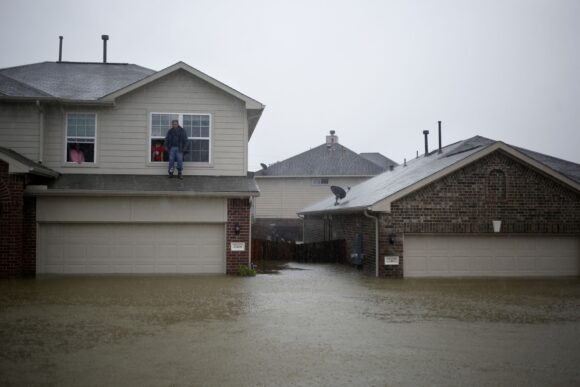Short but severe flooding that followed hurricanes Harvey and Irma in 2017 triggered a nationwide increase in flood insurance take-up driven by a county’s social network proximity to flooded areas, says a new academic paper.
The authors’ study tapped the Facebook Social Connectedness Index, which measures the strength of connectedness between two geographic areas as represented by Facebook friendship ties, to gauge how policies in force (PIF), renewals and new policies were affected by a county’s social connectedness to a flood.
“Social learning-induced new take-ups are greater and more geographically prevalent than social learning-induced renewals,” the report said. “A back-of-the-envelope calculation suggests that Hurricanes Harvey and Irma brought in 250,000 more PIF in flooded areas and 81,000 more PIF in unflooded areas in the three years following the event.”
Both hurricanes made landfall in the summer of 2017; Harvey hit Texas on Aug. 25, and Irma crossed into Florida on Sept. 10. The Texas Department of Insurance reported at the end of 2018 that the state’s insurers estimated they would ultimately pay out about $20 billion for Harvey claims. In late 2020, the Florida Office of Insurance Regulation estimated Irma’s insured losses to be approximately $20.7 billion.
The flood insurance study was penned by University of Illinois professor Yilan Xu and graduate student Sébastien Box-Couillard.
Xu told the University of Illinois News Bureau that “people see images of flooding through their social connections on their Facebook feed and think, ‘Hey, this could happen to me, too.’ The exposure to that risk signal then prompts them to update their previous perceptions about whether climate change can affect them, which subsequently transforms their views on local flood risks and decisions regarding signing up for flood insurance.”
The full document can be accessed for free on the Wiley Online Library website.
Topics Flood
Was this article valuable?
Here are more articles you may enjoy.



 BMW Recalls Hundreds of Thousands of Cars Over Fire Risk
BMW Recalls Hundreds of Thousands of Cars Over Fire Risk  Trump’s Repeal of Climate Rule Opens a ‘New Front’ for Litigation
Trump’s Repeal of Climate Rule Opens a ‘New Front’ for Litigation  What Analysts Are Saying About the 2026 P/C Insurance Market
What Analysts Are Saying About the 2026 P/C Insurance Market  Florida’s Commercial Clearinghouse Bill Stirring Up Concerns for Brokers, Regulators
Florida’s Commercial Clearinghouse Bill Stirring Up Concerns for Brokers, Regulators 

